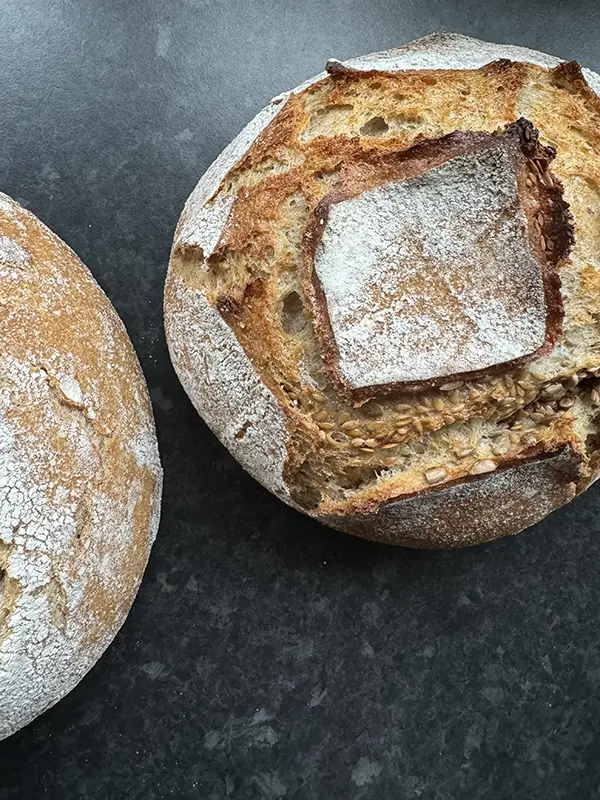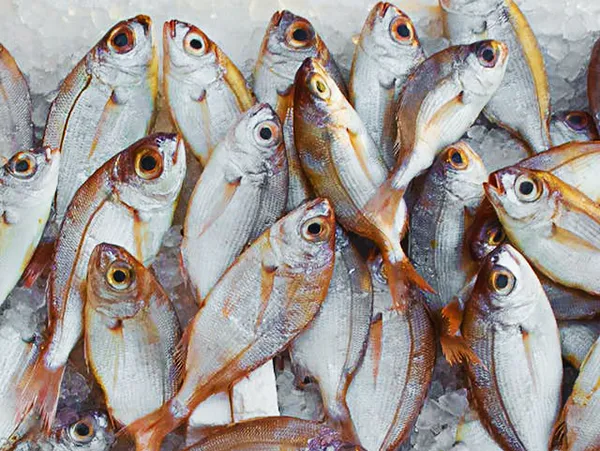A Shocking List of 35 most unhealthy food in the world
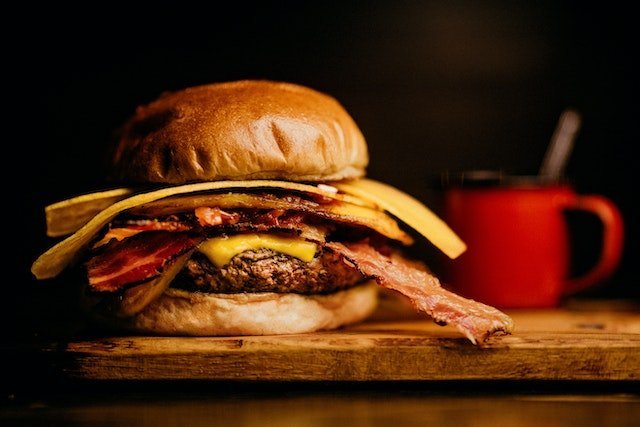
Shocking…
Around 73.6% of American adults had a BMI greater than or equal to 25, which means that 3 out of 4 Americans are overweight or even obese. Obesity further increases the risk of heart disease diabetes and more.
It is said that you are what you eat, which makes sense considering the fact that we consume food multiple times a day and that the food becomes our building blocks. Therefore selecting the correct foods is essential to guarantee that your body has enough of the necessary blocks for optimal health.
Alternatively, a house built with low-grade blocks will be of inferior quality. That’s why I present you the list of the most unhealthy foods in the world that can seriously impact your weight and health in a bad way.
Why unhealthy food is bad for your health/you?
Unhealthy snacks may be tasty but it’s really not doing your body any favors. Such foods are detrimental to our health because they are often high in calories, fat, sugar, and sodium. Consuming it regularly leads to all kinds of health problems, from short-term issues like feeling sluggish or bloated to long-term ones like obesity and diabetes.
Those foods also lack essential nutrients such as proteins, vitamins, and minerals that are necessary for the body to function properly. Nutrient deficiencies, can further worsen your health and make it difficult to fight off infections and illnesses. Additionally, most unhealthy treats have little or no dietary fiber which is important for digestion regularity as well as overall gut health.
The list of most unhealthy food in the world
Donuts

Donuts are one of the most unhealthy snacks in the world, due to that usually they are deep-fried in oils that contain trans fats and covered in icing or glaze that is full of sugars like corn syrup. Consuming donuts on a regular basis can lead to weight gain, increased risk of diabetes, and other health problems.
French Fries

French fries are undeniably one of the least nutritious choices you can make, as they’re abundant in unhealthy fats, calories, and sodium. Deep-fried in oil full of high saturated fat content like trans fat, and sodium – this delightful snack could be doing far more damage than good to your health. Furthermore, many processed french fries come loaded with preservatives or additives which only add further risks for those who enjoy them too often.
Fried Chicken/Fish/Burgers

Fried chicken, fish, and burgers are loaded with empty calories. Not only do they contain unhealthy saturated fat and trans fat that can lead to weight gain, but also high levels of sodium which increases the risk of diabetes. Moreover, fried food usually comes packed with preservatives or additives that can be detrimental when consumed too often. In short – eating these items regularly is not a healthy option for your body!
Pizza

Although I love a good pizza straight from a wood-fired oven it is one of the most dangerous dishes food to consume. It packs an astronomical amount of fat, calories, and salt that increase your risk for weight gain and diabetes. Store-bought pizza is the worst because it’s overloaded with artificial preservatives and flavor enhancers.
Potato Chips
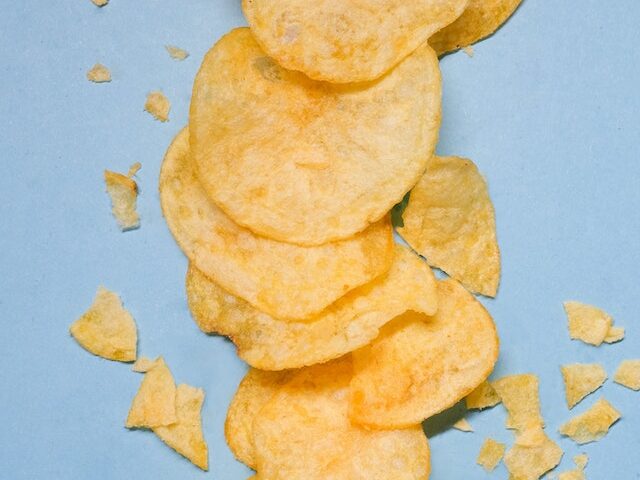
Potato chips deserve a top spot on my list of the most unhealthy food in the world. choices you can make. They are usually fried in oil full of saturated fat and sodium, making them high in calories and low in nutritional value they also contain preservatives or additives. All these factors combined make potato chips a poor choice for those looking to maintain a healthy diet.
Ice Cream

As much as I love ice cream there is no surprise it is on the list. Unfortunately, as tempting and delicious as it may be, it’s not a great choice for those looking to maintain a healthy diet. Most store-bought ice creams contain high levels of sugar like corn syrup and saturated fat, which can wreak havoc on your body. Low-calorie ice creams are often manipulated to substitute fat for extraordinary amounts of sugar replacements.
Processed Meats (sausage, bacon, etc.)

Processed meats like salami, bacon, and hot dogs can be a very tempting addition to your diet. They provide quick and easy meals that taste delicious. Unfortunately, these meats contain lots of sodium, fat, and chemical preservatives which are not good for our gut. Eating too much-processed meat increases your risk of developing heart disease as well as certain types of cancer.
Fizzy sugary drinks and diet sodas
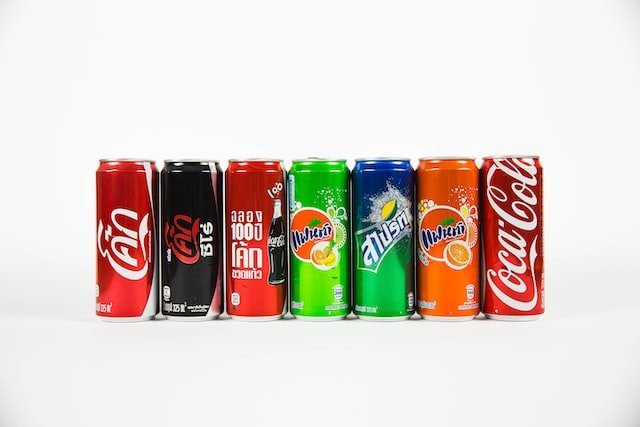
This is absolutely the worst thing you can put in your body. There are so many reasons why is it bad. Don’t be fooled by sugar-free and zero-calorie options; it’s simply a substitute for sugar. Which has been proven to worsen your health. This is a drink, but it surely deserves a spot on the most unhealthy food in the world.
Candy Bars and Gummy Candies Jelly Beans

Who doesn’t like jelly beans and candy bars? Unfortunately, candy bars, gummy candies, and jelly beans are usually viewed as unhealthy choices because they contain a lot of sugar and calories but very little nutrition. What’s more, these kinds of sweets usually contain high fructose corn syrup and artificial additives that have been linked to adverse health consequences.
High fructose corn syrup, tends to be high in saturated and trans unhealthy fats, which can heighten your danger of heart problems as well as other long-term health issues.
Store-bought Cakes and Desserts

When shopping for pre-made desserts, it’s easy to become tempted by the low prices – however, you must be aware that these treats are often loaded with cheap and unhealthy sugars and saturated fats. Have cake or dessert on a special occasion, but definitely do not add it to your regular diet.
The best advice is to make your own cake and that’s how you’ll be sure it doesn’t;s contain any artificial sweeteners like corn syrup.
Energy Drinks
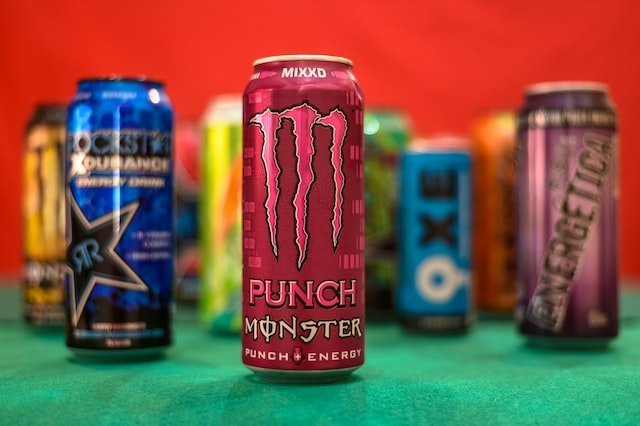
Numerous studies, such as the one conducted by Harvard University, have revealed a potential link between energy drinks and heart disease. Research shows if you were to drink just one of these sugary drinks every day, and not cut back on calories elsewhere, you could gain up to 5 pounds in a year. The sugar content in energy drinks ranges from 21 g to 34 g per 8 oz and can come in the form of sucrose, glucose, or high fructose corn syrup.
Granola Bars and Breakfast Cereals with Artificial Sweeteners

While it may sound nutritious, breakfast cereals and granola bars with artificial sweeteners could contain additives like preservatives, synthetic flavors, and sodium that are not beneficial to your well-being.
To provide an extra kick of flavor without added calories, many breakfast cereals and granola bars use artificial sweeteners such as saccharin, sucralose, high fructose corn syrup, corn syrup, and aspartame. Although they have a lower sugar and calorie content, they lack the important nutrients like protein, fiber, and healthy fats essential for a balanced diet.
White Bread

White bread is considered less healthy than whole-grain bread because it is made from refined flour, which means that the outer layer of the grain (the bran) and the germ are removed during processing. During this process, many of the essential vitamins, minerals, and fiber that are crucial for a healthy lifestyle will be removed.
White bread is loaded with simple carbohydrates, which can trigger an abrupt spike in blood sugar levels. This leads you to a destructive cycle of eating more to get more calories.
Refined Grains (white rice & white pasta)
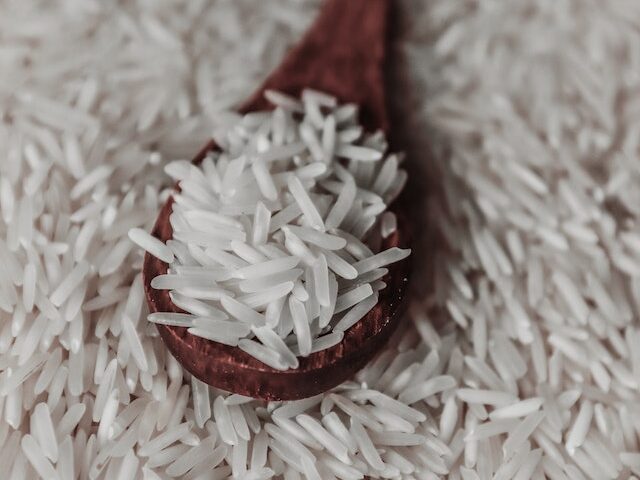
Refined grains like white rice and white pasta are staples in many households, but these grains have had their nutritional value significantly diminished during processing, which can have a negative impact on your health. If you continue to consume refined grains for the duration of your life, it could potentially inflict irreversible damage that may affect your quality of life in old age. Consider incorporating more whole grains like brown rice into your diet for better overall health – you won’t regret it!
Microwave Popcorn

Microwave popcorn may have negative health effects due to chemicals in packaging, added oils and salt, artificial flavors and preservatives, and the potential presence of diacetyl. Read more about why microwave popcorn is bad for your health.
Packaged Muffins or Pastries

Packaged muffins and pastries can be unhealthy due to their high sugar content, refined flour, trans and saturated fat, preservatives, additives, and calorie density. They are loaded with artificial sweeteners like corn syrup or high fructose corn syrup.
By consuming these ingredients, you may experience weight gain, type 2 diabetes, heart disease, and other health issues. For optimal health, cut out the processed packaged muffins and pastries. Instead, opt for a healthier option such as homemade whole-grain muffins with fresh fruit and nuts to fuel your body in the best way possible!
Margarine and other spreads

Have you ever come across an advertisement that promoted margarine as a healthy option for your family to enjoy on a daily basis? Chances are you have! With all the vitamins printed on its packaging, I was convinced that consuming this product would be beneficial to my health.
Unfortunately, many of these products are manufactured with hydrogenated vegetable oils that contain trans-fats a known risk factor for heart disease, stroke, and other devastating health issues.
Salty Snacks like nuts, fish, jerky

Mmmm, those are my go-to snacks and I’m always under the impression that they’re healthy since there’s no sugar included! But I was so wrong, they also go to the processed meat group. Well, I talking about supermarket packet salty snacks. You can always find a healthy alternative like jerky.
Fast Food/Junk Food
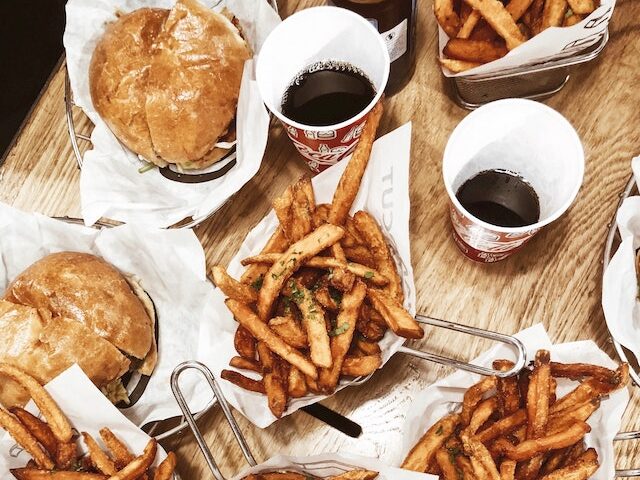
Fast food is one of the most popular meals on the menu for many people, but it’s also one of the least healthy. Fast food restaurants often use processed ingredients and unhealthy cooking methods to make their meals extremely tasty. Eating too much fast food can cause weight gain, high cholesterol levels, and an increased risk for heart disease and diabetes. For these reasons, it is important to limit or avoid eating fast food if you want to maintain healthy body functions.
Pre-made sauces like barbecue or Creamy Salad Dressings

Pre-packaged sauces and dressings can be a detriment to your health, given their high levels of calories, sugar, sodium, trans fat, and preservatives. Consuming these ingredients can lead to major health issues such as obesity, high blood pressure, and weight gain.
To make more nutritious decisions, search for pre-made sauces with limited calories, no added sugar, reduced sodium content, and without trans fat or artificial ingredients. Instead, why not create your own sauces using only fresh ingredients and nourishing oils? This way, you can guarantee that the food is both tasty and nutritious.
Most Processed Cheese

Ow sweet cheeses, why you are unhealthy? Well, I’m not saying all cheese is bad for you, I’m talking about most of the processed ones. So why exactly processed cheese is unhealthy?
Consuming processed cheese can have significant negative effects on your health, due to its high sodium content, excessive saturated fat levels, and potentially dangerous artificial additives. If you want to choose healthier alternatives, then reach for natural cheeses with lower levels of sodium and saturated fat, such as mozzarella, feta, or goat cheese. For those who prefer processed cheese, make sure to select varieties that do not contain potentially damaging additives and boast lower levels of sodium.
Mayonnaise

I know most of us enjoy dipping our fries or a burger into a mayo, it makes them so much more juicy and delicious, doesn’t it? But what actually is wrong with mayonnaise? Well, if you make your own mayo, you are on the right track. Store-bought mayo is high in saturated fats and questionable additives, also it is high in calories and sodium.
Fruit Juices

While fruit juices may seem like a healthy choice for a beverage, they can hold many naughty secrets. Not all fruit juices are bad, but usually, store-bought juices are full of added sugars.
Even if not packed with added sugar, this type of drink is still far from optimal as it contains a substantial amount of natural sugars that come without the good fiber found in actual fruit. So instead grab an actual fruit your tummy will thank you.
Canned Soup and most canned foods

A study published in 1997 reported that canned fruits and vegetables are as rich in dietary fiber and vitamins, yet nowadays canned soups, along with other canned foods, are regularly high in sodium and unhealthy preservatives. These products often include added sugars and trans fat which can be potentially hazardous to your health. Here is more information on how canned soups affect Americans.
Fried Fish Sticks

While fried fish sticks are a quick and easy meal option, they can also be unhealthy. This is because they are often high in calories, unhealthy fats, and sodium. Fried food is typically cooked in oils that are high in trans and saturated fat, which can increase your risk of heart disease and other health issues. While fish can be a healthy part of a balanced diet, it’s important to be mindful of how it’s prepared. Opting for baked or grilled fish instead of fried can help you enjoy the health benefits of fish without the negative effects of frying.
Deep Fried Foods

Anything deep-fried will be on the list of the most unhealthiest foods, and you should always opt out of this cooking method and deep-fried foods in general. The process of deep frying involves the food being submerged in hot oil, it absorbs a significant amount of fat, which increases its calorie content and also adds extra unhealthy trans and saturated fats.
Syrups and Sugars
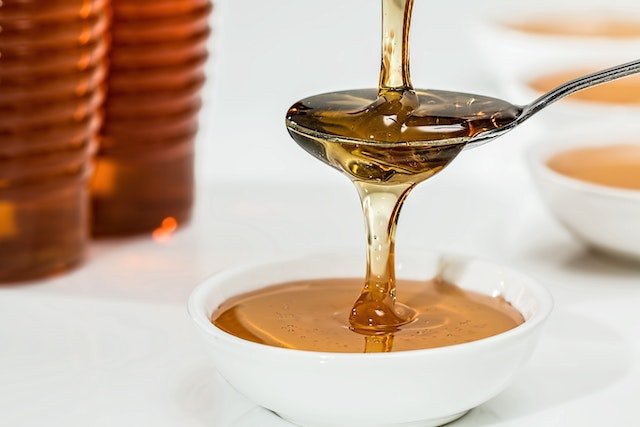
Syrups and sugars can be extremely detrimental to health and weight. Things like corn syrup or pure maple syrup should be consumed in moderation.
Everyone knows that sugar is bad for you and it does not matter what kind of form or color it is, almost all sugars are equally bad. It is all high in calories and very easy to consume more than is recommended. Consuming too much sugar can also increase the risk of developing type 2 diabetes, heart disease, and certain types of cancer
Jam
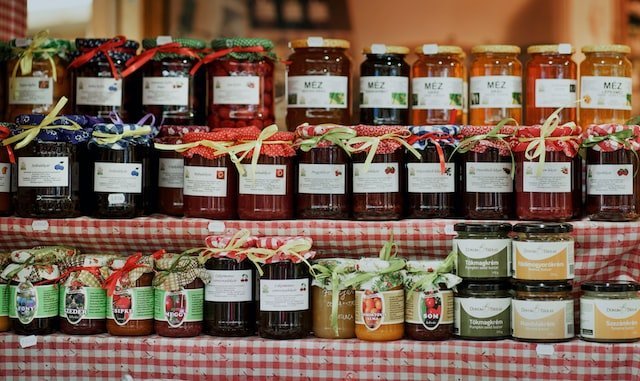
It’s no secret that jam is a tasty way to add sweetness to your morning toast, but it should not be used as part of a healthy diet! Jam is made with added sugar and sometimes artificial preservatives, which can be detrimental to our health in the long run. Instead of jam or jellies try some fresh fruit or berries, it will add that sweet kick, but without unnecessary calories.
Hams

Everyone loves a good slice of ham, but watch out they are hiding something. It is unbelievable amounts of added extra salt and saturated fats, especially in store-bought hams, jerkies, sausages, and other processed meats. These foods still can be enjoyed from time to time, but shouldn’t be a regular part of a nutritious diet.
Chocolates and sweets

Chocolates are not all that bad if consumed moderately, but since they are so good it is very hard to do so. 97% of Americans eat chocolates, candy, or some sort of sweets at least one time a year. They are not the worst calories on this list, yet it is very easy to over-consume them.
Have you ever opened a bag of candy and told yourself self “I will have only a few” 5 minutes later you realize the whole bag is gone?
Instant soups and pot noodles

Instant soups and pot noodles may seem like an easy and convenient way to fix a meal, and I love them from time to time, but it’s important to be aware of the potential for them to have a negative effect on your health. These types of food are incredibly high in sodium, additionally, most instant soups and pot noodles fail to provide adequate nutrition needed to stay healthy – they’re basically empty calories that can quickly lead to unhealthy weight gain or other nutritional deficiencies if not balanced out with healthier options.
Most yogurts

Yogurt has always been an ideal choice for a wholesome breakfast or snack. And if you select the plain option without any added sugars, then it is certainly healthy! However, be aware that most yogurt varieties are loaded with sugar and synthetic additives.
Eating these can lead to weight gain and dental decay. Marketed as healthy options or low-fat yogurts have a secret, they will have incredible amounts of sugar, and low-sugar yogurts will be loaded with unhealthy fats. Go for more healthy natural choices– like plain Greek yogurt, or vegan yogurts that contain no extra sugar or fat.
Vegetable oils

Vegetable oils are commonly used in cooking and food preparation, and they are marketed as healthier alternatives to animal fats. However, they can be considered unhealthy if consumed in excess. Vegetable oil is often overly processed, which can strip away the nutrients in the oil and produce damaging compounds – such as trans unhealthy fats. For a healthier option choose extra-virgin olive oil, avocado oil, or coconut oil.
Microwave ready-meals

When you’re short on time and need to whip up something quick, it may seem like microwave-ready meals are the perfect solution. However, they often contain high amounts of sodium, calories, saturated fat, and sugar, while being low in nutrients like fiber, vitamins, and minerals.
Instead of relying on these less healthy prepared meals, check out these homemade alternatives to store-bought microwave meals. By making your own quick and easy meals at home, you can control the ingredients and nutrients. This helps avoid the weight gain and increased health risks that can come from eating too many high-sodium, high-calorie frozen meals.
How to avoid or reduce the consumption of these most unhealthy Treats
Avoiding is simple yet hard to do so here are some simple alternatives to the most common guilty foods.
Sugary drinks: Swap out soda, diet soda, energy drinks, and fruit juice with added sugars for water, sparkling water, herbal tea, or unsweetened coffee or tea. You can also infuse water overnight with lemon or cucumber for extra flavor and nutrition
Fried foods: Opt for baked, grilled, or broiled options instead of fried foods. For example, choose baked chicken instead of fried chicken, or roasted vegetables instead of French fries.
Processed meats: Try substituting those foods like deli meat, hot dogs, and sausages with lean protein sources like chicken, fish, tofu, or legumes.
Candy and sweets: Satisfy your sweet tooth with naturally sweet foods like fresh fruit, dried fruit, or smoothies made with fruit and vegetables.
Fast food: Limit your intake of fast food by preparing meals at home and packing snacks and lunches to take with you on the go. If you do eat fast food, choose healthier options like salads or grilled chicken sandwiches instead of burgers and fries.
Refined carbohydrates: Choose whole grain options for bread, pasta, and brown rice instead of refined grains. Whole grains are higher in fiber, vitamins, and minerals than refined grains.
Trans fats: Avoid products made with partially hydrogenated oils, which are a source of unhealthy fats. For health benefits, choose foods made with healthy fats like nuts, seeds, avocado, and olive oil.
High-sodium foods: Look for low-sodium options or try flavoring your food with herbs and spices instead of salt. Be mindful of condiments like ketchup, soy sauce, and salad dressing, which can be high in sodium.
Remember, a healthy diet is all about balance and moderation so take it one bite at a time.
Summary
I hope that this article has provided a helpful list of the different types of unhealthy stuff to avoid. I have explored their negative effect on our bodies, and their impact on health and even discussed the link between unhealthy eating habits and chronic diseases.
So, if you’re concerned about your weight or deadly diseases, it’s best to begin cutting out as many of these items as you can from your diet.

Eating less of the foods on this list will help you lower your intake of bad fats excess sugar and salt, which will contribute greatly to bettering overall health and maintaining a healthy weight.
Keep in mind that making small changes can result in big long-term benefits for your health and wellness so take it one bite at a time. Start today by eliminating just one item from this list for the next week!
Hope to see you in my other blog posts, my friend!
Links to additional research resources
Why is sugar bad in the long term?

